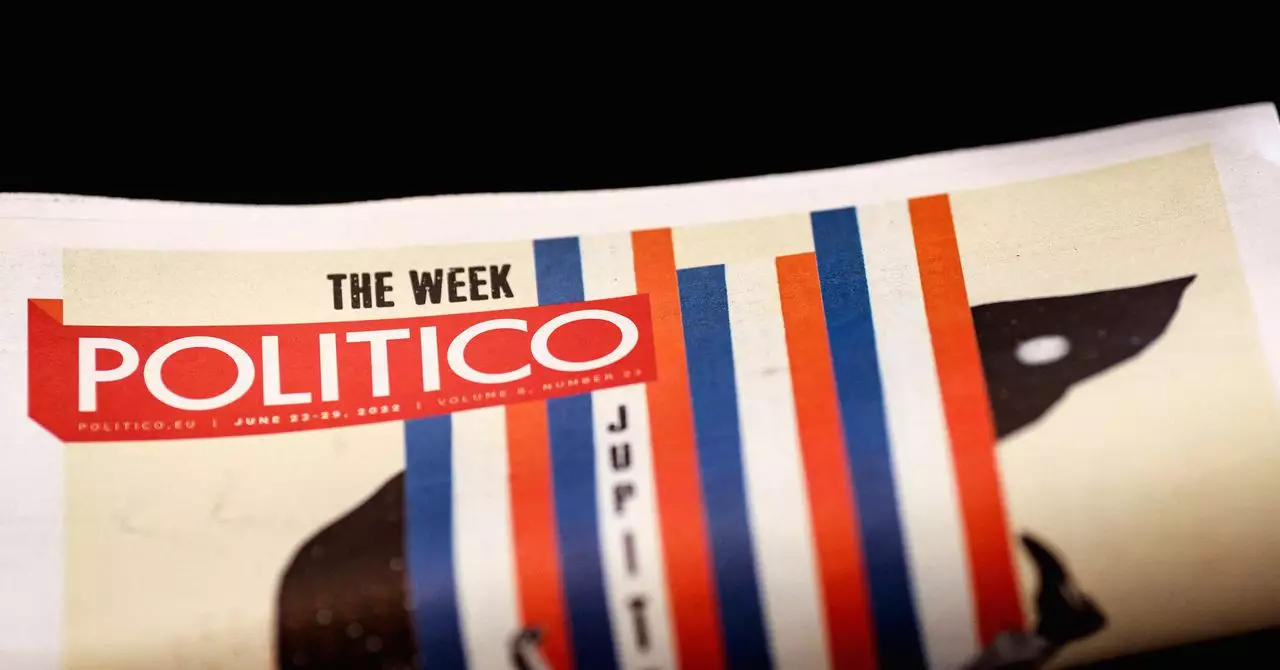As technology continues to infiltrate every aspect of our lives, the realm of journalism is not exempt. Newspapers and digital media have begun to embrace artificial intelligence (AI) as a powerful tool, aiming to streamline operations in an era marked by an incessant demand for timely information. Politico has championed this trend, heralding a suite of AI-generated products designed to revolutionize news delivery during significant political events. Yet, as much as AI holds the potential to enhance efficiency, it simultaneously raises critical questions about ethics, accountability, and the indispensable role of human journalists.
The enthusiasm for AI at Politico has not been uniformly echoed; a rising tide of dissent is emerging from within the very newsroom that was quick to adopt these technologies. The PEN Guild, representing journalists at Politico, has recently taken a bold stand against management over alleged violations of their union contract relating to AI deployment. This dispute transcends a mere contractual disagreement; it teeters on the brink of redefining the cinematic landscape of journalistic practices as they intertwine with advanced technologies.
Union Voices: A Call for Ethical Oversight
In a landscape devoid of comprehensive federal regulations governing AI usage, unions like the PEN Guild serve as bastions of accountability. The claim brought forth by the union members suggests that AI tools, far from merely augmenting journalistic endeavors, are encroaching upon jobs traditionally held by human journalists without the prerequisite notice and negotiation. Union chair Ariel Wittenberg encapsulates this dispute as a pivotal moment not just for Politico but for all media outlets venturing into AI territory.
Such moments illuminate the precarious balance between technological advancement and the preservation of journalistic integrity. The responsibility falls heavily on news organizations to ensure that AI-generated content does not compromise the rigorous ethical standards that journalists have long upheld. In situations where AI outputs language deemed inappropriate or factually flawed, as noted in instances during live political coverage, the very foundation of factual reporting can be undermined.
Human Validation: The Cornerstone of Journalism
While AI can enhance efficiency by processing vast amounts of data swiftly, there are undeniable elements of human oversight that cannot be replicated by algorithms. When AI-generated content strays into controversial language or factual inaccuracies, it provokes a profound inquiry: who is ultimately accountable for the narratives presented to the public? The union voiced concerns that certain AI outputs deviated from the rigorous guidelines that govern human-produced content, highlighting an essential need for human validators to oversee AI’s influence on newsroom practices.
The fact that Politico’s AI system produced content that included phrases like “criminal migrants” underscores a broader, troubling issue. Such language not only reflects a potential ethical oversight but also poses risks of propagating agendas that could further polarize public discourse. As unions raise alarms, the demand for human oversight becomes not merely a procedural necessity but a moral imperative to ensure the integrity of reporting.
Setting a Precedent for the Future of Journalism
The legal conflict currently brewing at Politico underlines a pivotal moment in the relationship between labor and technology within journalism. The potential outcomes of the PEN Guild’s negotiations and arbitration may set a standard for how media organizations and labor unions approach the integration of AI moving forward. If successful, these efforts could embolden journalists across the country to take a more assertive stance regarding the ethical implications of technology in their work environments.
As media outlets continue to endorse innovative technologies, it is incumbent upon them to foster a culture of transparency and accountability. The future of journalism should not be defined solely by technological capabilities; rather, it should encompass the unwavering commitment to upholding journalistic ethics. Particularly in an age where misinformation spreads with alarming velocity, it becomes increasingly vital for journalists to govern the narrative, ensuring that technology serves as an ally rather than an adversary.
With management claiming a commitment to ethical standards even as they rapidly embrace AI, the real challenge lies in creating a collaborative environment where technology can be harnessed responsibly. It is essential for newsrooms to engage with their reporting teams, fortifying the notion that the intersection of AI and journalism should not result in the marginalization of human insight, but rather, cultivate a harmonious balance that leverages technology to inform, empower, and enlighten their audiences.

